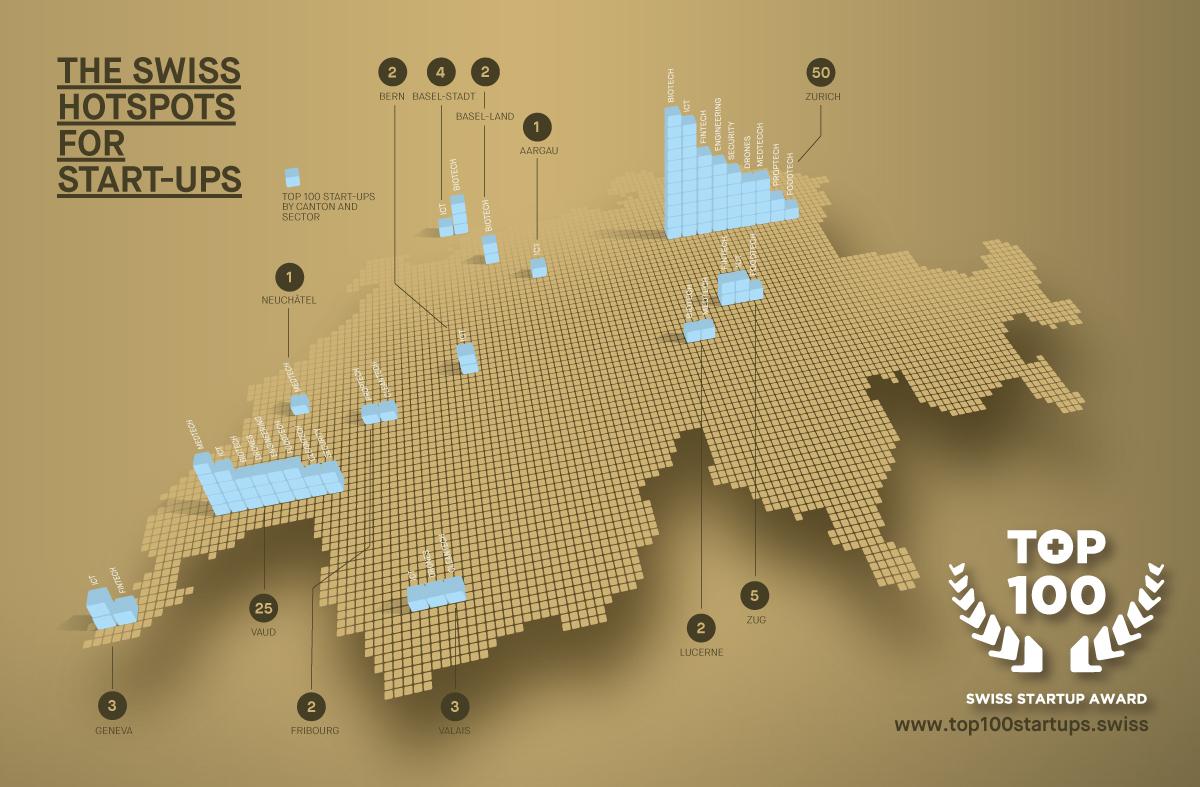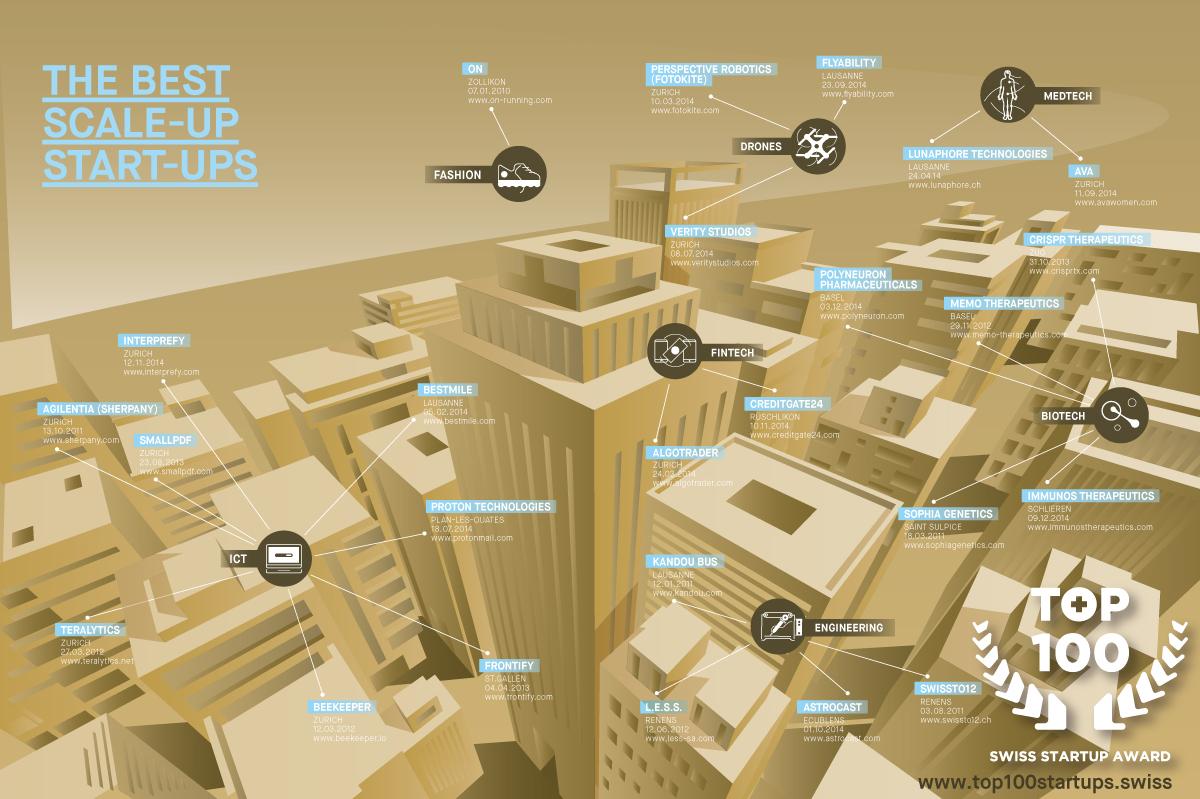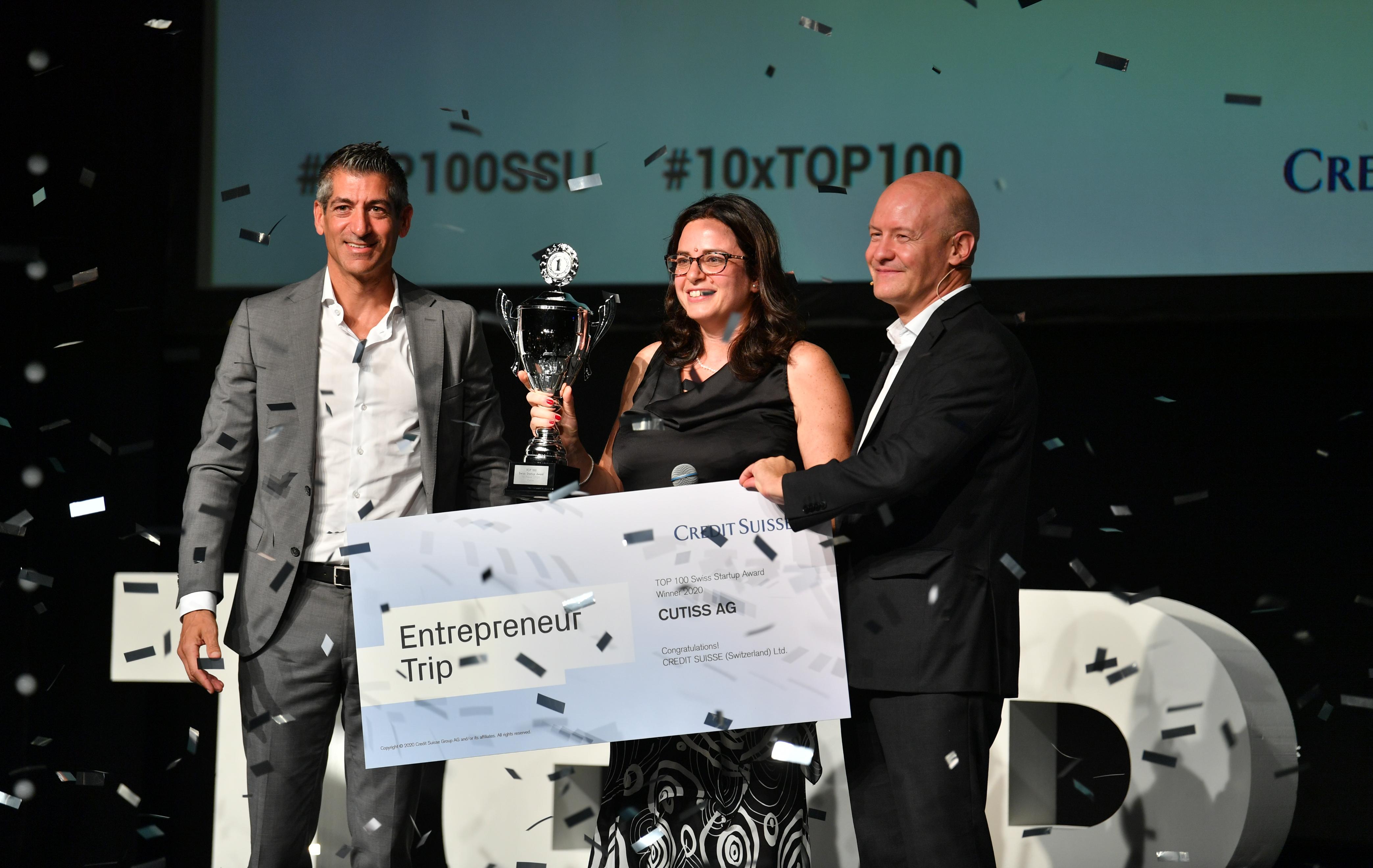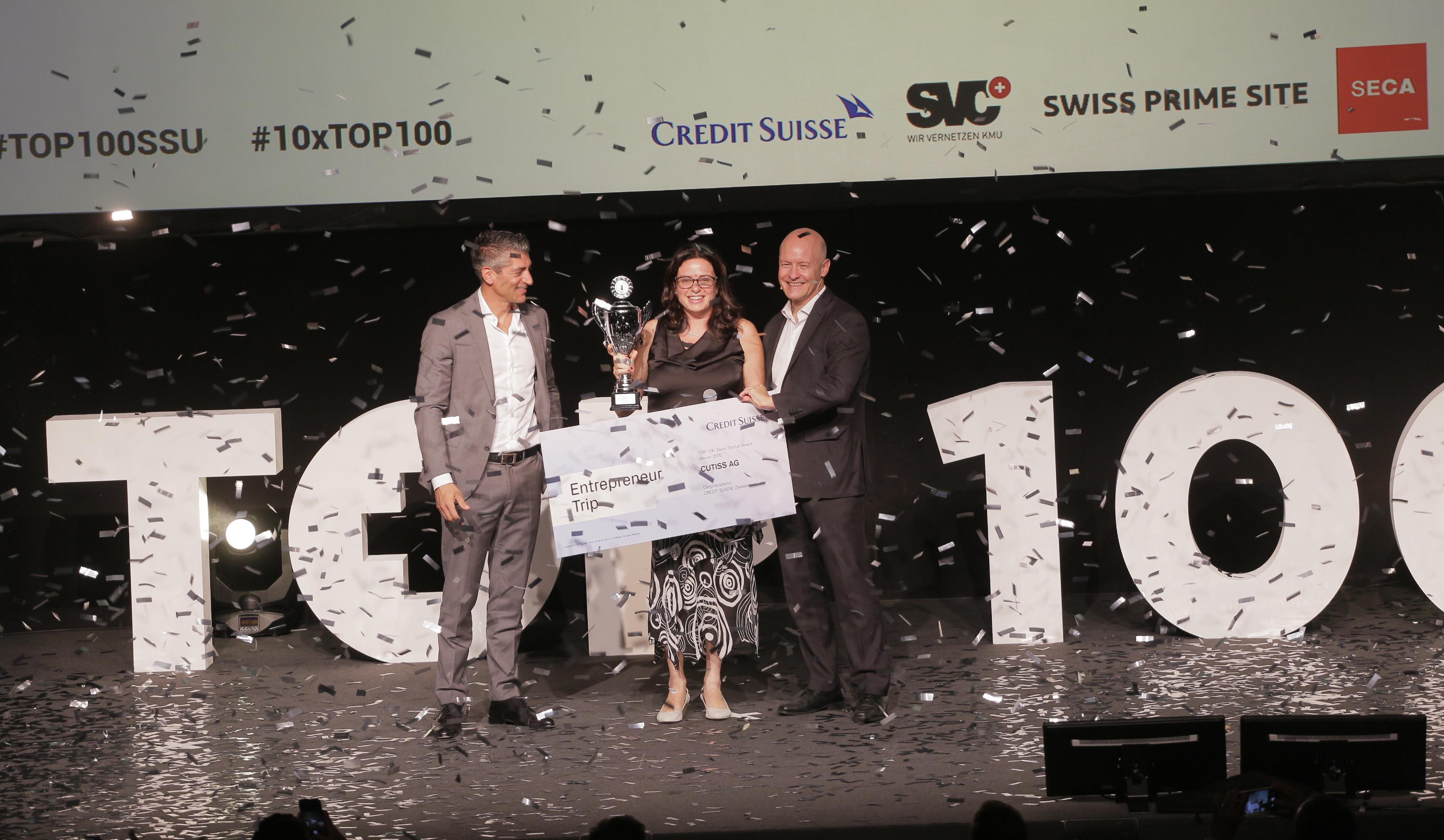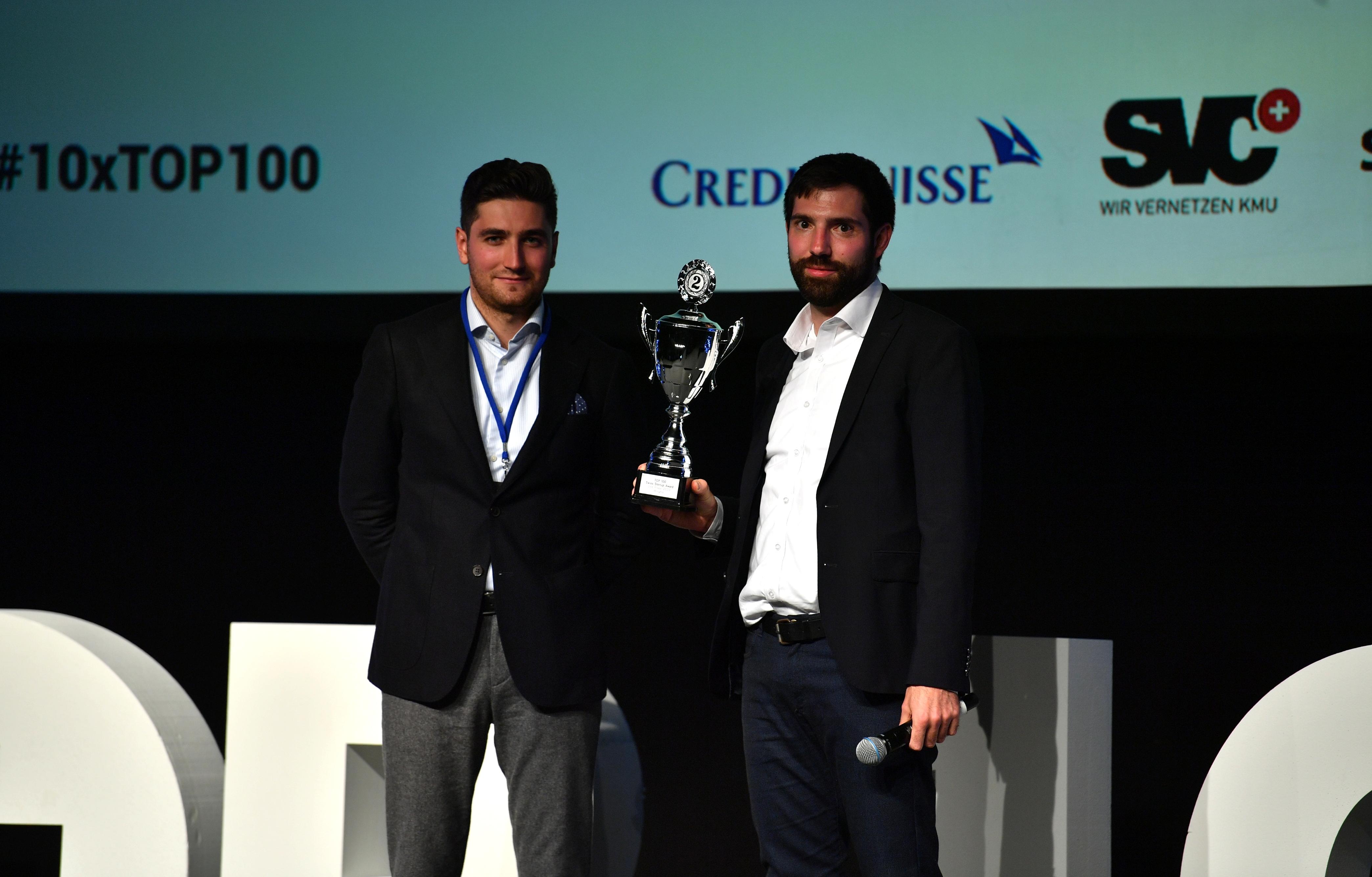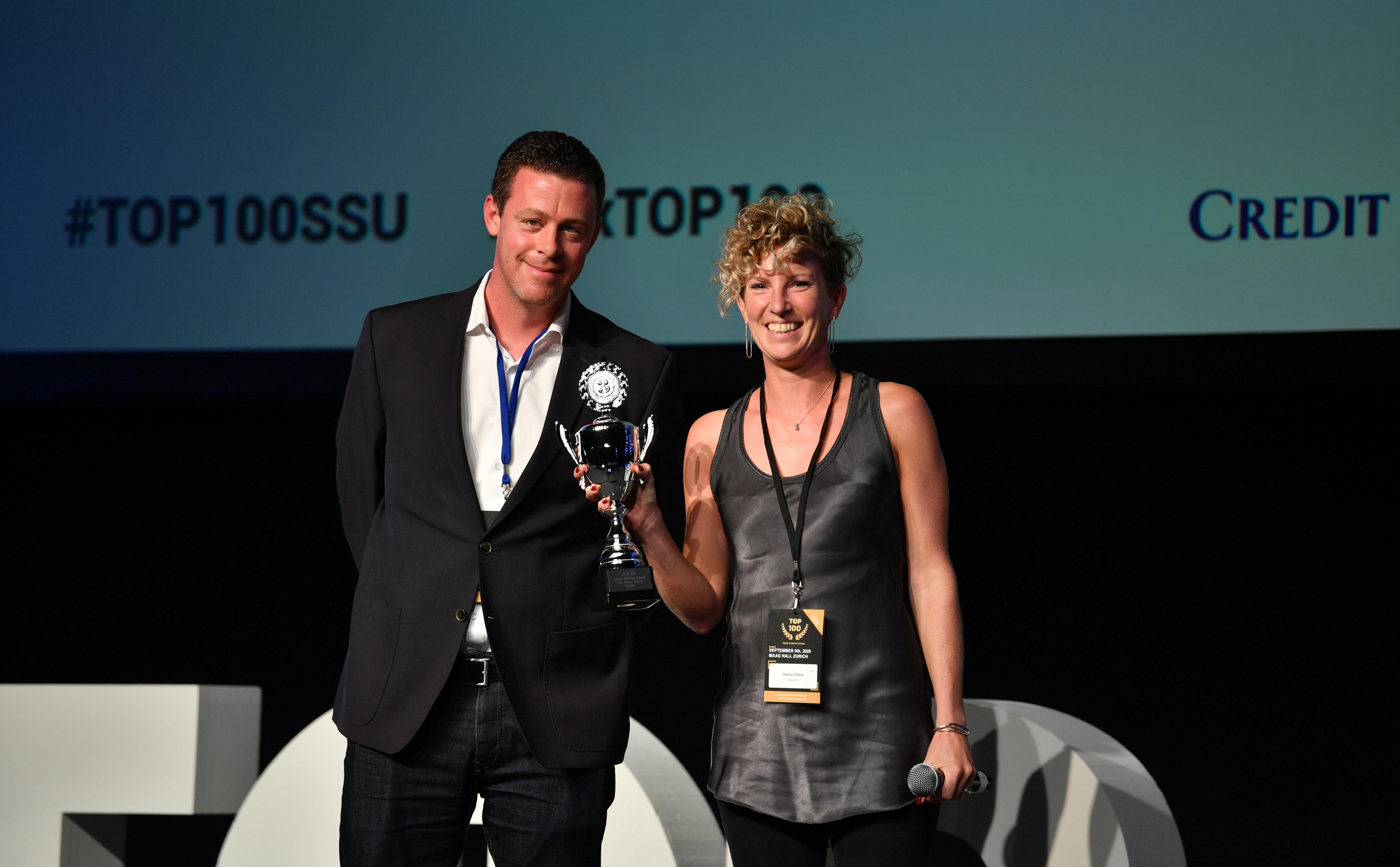TOP 100 Swiss Startup Award jury member Bettina Hein has 25 years of experience in the international innovation ecosystem. The high-tech entrepreneur from St. Gallen not only snares the unwary on television. Read Jost Dubacher’s interview with Bettina Hein for the TOP 100 Swiss Startup Magazine 2020.

You are known to the German-speaking public as an investor on the TV show Die Höhle der Löwen. What made you participate?
Bettina Hein: Entrepreneurship is my passion. I would like to inspire other people too. For me, Die Höhle der Löwen is popular education in the guise of entertainment. When I started, I had the aim, together with my co-investors, of reaching those groups of the population that are otherwise not really interested in business or innovation financing.
Did it work?
Absolutely. I’m recognized on the street. I was recently approached by two women in their 50s, and they took a selfie with me.
In your main job, you are a successful entrepreneur. Your specialty is the development and marketing of software. What’s your newest project?
It’s called juli – like the month. We want to help chronically ill people manage their illness and thus improve their lives. Our app brings together data from electronic patient records and the smartwatch, and environmental data, such as particulate pollution and hours of sunshine. We expect to launch a beta version in the autumn. As for customers, our view is that we see the patient as the first step, and then followed by health insurers and insurance companies.
You started your entrepreneurial career with an ETH spin-off – SVOX’s software converted text into spoken language. As an HSG graduate, did you know anything about software?
Business administration bored me very quickly during my studies. Software development is more logical and structured. I’m a tech girl. I learned my first programming language when I was eight – I wrote logo programs on an Apple II computer at school.
Shortly after SVOX was founded in 2001, the dot-com bubble burst. Bad timing?
When I talked about our project in private, I got pitying smiles: “You’re starting a startup? Now? You could achieve so much with a McKinsey internship...” That’s how it was back then. But it turned out well. Our software became the de facto industry standard for navigation systems. In 2011, we sold SVOX for CHF 125 million. The investors, which had made a total of CHF 8 million available, were delighted with us.
In 2012, you were living in the US. Why did you move to Boston?
It’s my nature: I want to play in the top division. My goal was to learn entrepreneurship from the best players in Boston.
Which you did very well: Pixability, your company in Boston, employs 100 people. What do these employees do?
Pixability markets software that tracks promotional videos on YouTube and Facebook. Our customers are large advertising agencies. Our tool shows them how often a clip is viewed and in which environment it is running. Brands such as Ford, Swatch, and L’Oréal use this information to manage their advertising budgets on their social media platforms.
Two years ago, you retreated to the board of Pixability and moved your life back to Switzerland. Why?
We have a nine-year-old daughter and a six-year-old son. It was important to us that they complete their schooling in Switzerland.
Your husband Andreas Goeldi was a co-founder of the internet agency Namics and now works as an investor. How did you organize family life during the lockdown?
It was a very strenuous time. When the schools closed, things went haywire for us at times. It suited me that I was barely on the move due to the travel restrictions. I’ve been to the US once since mid-March; otherwise, I have been working from Switzerland. I’ve found there’s little I’ve missed. My feeling is that I can become involved better than before. The added value that I can bring to a meeting has increased.
There is currently a lot of discussion about whether the coronavirus pandemic will change business travel habits in the long term. What do you think?
People are different: some like to make phone calls, others prefer to email, others like to talk face to face. As for me, I would estimate that every third contact with close employees or key customers was made personally. Now I’ve seen that more is possible with much less; for example, the team for juli was recruited largely remotely.
 As a business angel, you are currently invested in eight Swiss startups. The lockdown brought liquidity difficulties to many companies. How have you reacted to this?
As a business angel, you are currently invested in eight Swiss startups. The lockdown brought liquidity difficulties to many companies. How have you reacted to this?I’ve been in demand mainly by the four startups where I’m also on the board of directors. We had to contact the donors and sound out whether they would be willing to provide bridge financing. At the same time, we clarified to what extent the support measures offered by the government could benefit us.
Was that the case?
Barely. A loan of 10% of the previous year’s turnover does not help a startup. Innovation promotion is not part of the standard repertoire of Swiss politicians.
Is it better in the US?
Oh, no! There’s huge chaos there. As an entrepreneur and board member of the Center for American Entrepreneurship in Washington, I am directly aware of the confusion about the aid for corona. Nevertheless, the American innovation ecosystem remains the measure of all things.
Why?
The US quite simply has the largest talent pool. Silicon Valley and Boston have an enormous number of highly qualified people who can use their specific knowledge to advance a company in every phase, from foundation to global expansion. That’s why Americans are so good at scaling their ideas. A growth company has access to the best people from around the world.
The keyword is recruitment: on September 27, we will vote on the SVP’s limitation initiative. What would be the consequences for the startup scene if it were to be adopted?
It would be bad. We would lose one of our most important locational assets in one fell swoop: the attractiveness of the greater Zurich, Basel, and Lausanne/Geneva areas for top international people.
Diversity – the much-cited diversity – is seen as a competitive advantage in the startup scene. Even so, women are still outnumbered. Why?
The ecosystem was much more masculine 20 to 25 years ago. It takes time to change things like that. When I was studying in St. Gallen in the mid-1990s, the proportion of women at the university was 19%. Today it is 35%. It is definitely getting better. And also because women have learned something too.
In what way?
Let’s take the example of the investor pitch. Women tend to voice their doubts and considerations; they qualify their statements and weigh them up. In front of a group of male investors, this is completely wrong. Many women now know that pitching has to be brisk and self-confident. It’s important that they give potential donors the confidence that they’re convinced of their project and have the toughness to see it through to the end.
Twenty-five years ago, you were one of the founders of the START Global association, which today runs the largest student-organized startup event in Europe. Are you still in contact with your former colleagues?
For sure. Many of those who were there at the time have remained with the innovation scene and are part of the START alumni network. Florian Schweizer is still with btov, Umantis founder Hermann Arnold is an investor, and DeinDeal founder Adrian Locher is a serial entrepreneur.
In an interview, you said that you and Andreas Goeldi, as a couple, had set yourselves the goal of creating 5,000 jobs. How far along are you?
If I’ve added everything up correctly, we have somewhere between 800 and 900 jobs in Switzerland and the US. So there is still a lot to be done.
 Andreas Goeldi and Bettina Hein at the TOP 100 Swiss Startup Award 2020
Andreas Goeldi and Bettina Hein at the TOP 100 Swiss Startup Award 2020This article by Jost Dubacher was first published in the TOP 100 Swiss Startup Magazine 2020.


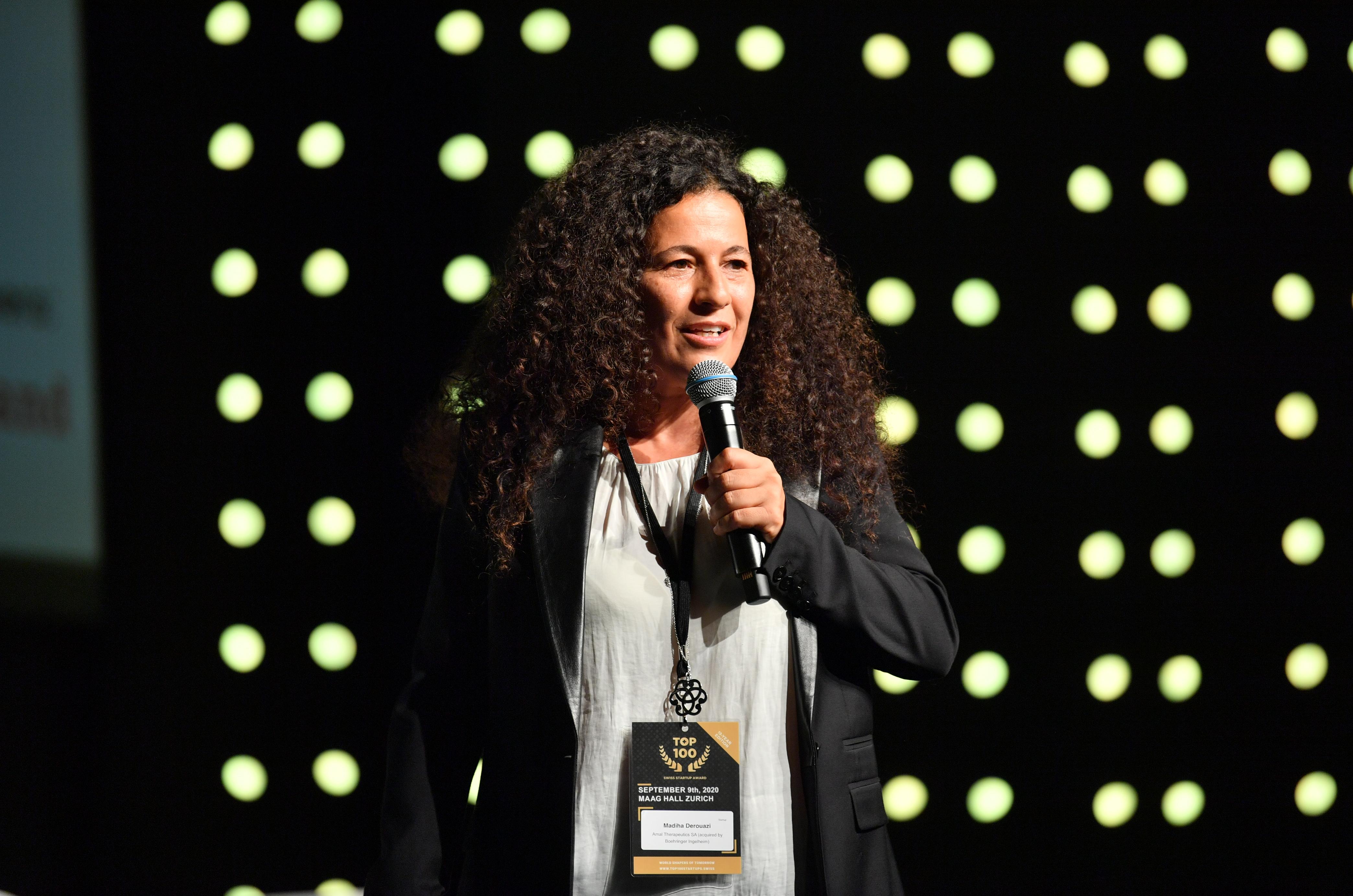
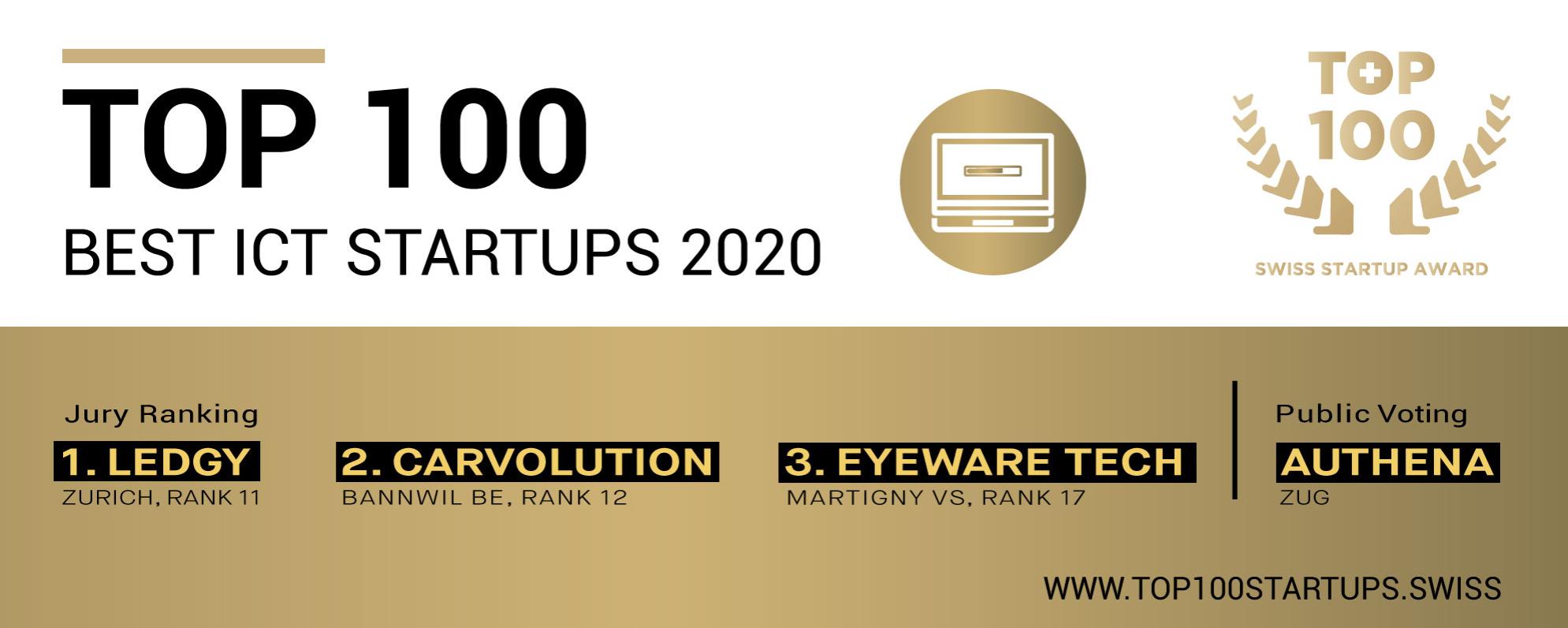
1.jpg)
